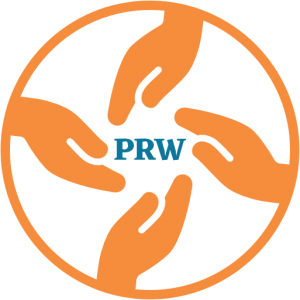Shelley Brickson
Associate Professor
University of Illinois at Chicago
brickson@uic.edu
Website
Research Interests
My work addresses the interface between identity and relationships at multiple levels of analysis. This is a rich intersection because our identities shape how we relate to others. Meanwhile, our relations with others also help to define who we are.
Two streams of my research pertain to relationships between individuals. In one, I consider how individuals’ identities influence their interactions with those who are demographically different from themselves. I am particularly interested in how viewing oneself as a relationship partner (relational identity orientation) seems to foster especially generative interpersonal and intergroup dynamics. In the other stream related to individuals’ relationships, I consider the role of organizational identity in shaping interpersonal (and intergroup) dynamics that arise within organizations.
In addition, my research addresses relationships at other levels of analysis – the employment relationship and interorganizational relationships. In particular, it considers how organizational identity shapes these relationships by informing the practices by which organizations manage the employment relationship and relationships with external stakeholders. I am especially interested in the impact that these different forms of relating have on the well-being of members and external stakeholders.
My teaching also focuses heavily on relationships. In my Negotiations class, we talk extensively about negotiations as a relationship building exercise. We consider forms of communication that engender positive interpersonal dynamics and, ultimately, problem solving and value creation. In my Leading for Impact class, we spend the bulk of the class exploring distinct, but positive, approaches to managing relationships at different levels of analysis (interpersonal relationships, the employment relationship, interorganizational relationships). Ultimately, we come to appreciate that positive relationships are at the absolute core of having a positive impact
Related Publications
- Bundy, J., Shipp, A. & Brickson, S. (randomized authorship) (2022). From the Editor: Demystifying and normalizing the psychological experience of writing for AMR: A qualitative analysis of the highs, lows, and suggested coping strategies. Academy of Management Review, 47(3): 341-357.
- Amis, J. Brickson, S., Haak, P., and Hernandez, M. (2021). From the Editor: Taking inequality seriously. Academy of Management Review, 46(3): 431-439.
- Ashforth, B. A., Schinoff, B. S. & Brickson, S. L. (2020). “My company is friendly,” “Mine’s a rebel”: Anthropomorphism and shifting organizational identity from “what” to “who.” Academy of Management Review. 45(1); 29-57.
- Besharov, M. L. & Brickson, S. L. (2016). Unpacking the relationships between institutional forces and organizational identities. In B. E. Ashforth, M. G. Pratt, D. Ravasi & M. Schultz (Eds.), Oxford Handbook of Organizational Identity. Oxford University Press, New York, NY. 396-414.
- Brickson, S. L. Athletes, best friends, and social activists: Accounting for the role of identity in organizational identification. Organization Science. Conditional acceptance.
- Harquail, C.V. & Brickson, S. L. (Forthcoming). The defining role of organizational identity for facilitating stakeholder flourishing: A map for future research. In K.S. Cameron and G.M. Spreitzer (Eds.), Oxford handbook of positive organizational scholarship. Oxford University Press. London.
- Brickson, S. L. & Lemmon, G. (UIC doctoral student) (2009). Organizational identity as a stakeholder resource. J. E. Dutton and L. M. Roberts (Eds.), Exploring positive identities and organizations: Building a theoretical and research foundation. Psychology Press, New York, (pp. 411-434).
- Brickson, S. L. (2013). Athletes, best friends, and social activists: Accounting for the role of identity in organizational identification. Organization Science.
- Harquail, C.V. & Brickson, S. L. (2012). The defining role of organizational identity for facilitating stakeholder flourishing: A map for future research. In K.S. Cameron and G.M. Spreitzer (Eds.), Oxford handbook of positive organizational scholarship. Oxford University Press. London.
- Brickson, S. L. (2008). Reassessing the standard: The positive expansive potential of a relational identity in diverse organizations. Journal of Positive Psychology. 3(1), 40-54.
- Brickson, S. L. (2007). Organizational identity orientation: The genesis of the role of the firm and distinct forms of social value. Academy of Management Review. 32, 864-888
- Brickson, S. L. (2005). Organizational identity orientation: Forging a link between organizational identity and organizations’ relations with stakeholders. Administrative Science Quarterly, 50, 576-609.
- Brickson, S. L. & Brewer, M. B. (2001). Identity orientation and intergroup relations in organizations. In M.A. Hogg and D.J. Terry (Eds.), Social identity processes in organizational contexts: Psychology Press.
- Brickson, S. L. (2000). The impact of identity orientation on individual and organizational outcomes in demographically diverse settings. Academy of Management Review, 25(1), 82-101
